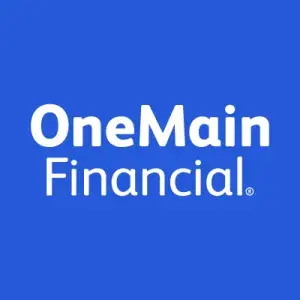When unexpected expenses arise, RISE offers quick, accessible online loans designed to help you cover emergencies—even without perfect credit.
With a streamlined application and fast funding, RISE ensures you get the support you need without the hassle of traditional banks.
✔ No strict credit score requirements – Options for low or no credit.
✔ Same-day funding – Get funds as fast as 24 hours.
✔ No hidden fees – Clear terms upfront.
Disclaimer: You will be redirected
How RISE Loans Work
RISE offers a streamlined solution for unexpected expenses like medical bills, car repairs, or urgent bills. Their online process skips traditional bank hurdles, with approvals in minutes and deposits directly to your account.
What repayment terms does RISE offer?
RISE loans come with flexible repayment plans tailored to your budget, typically ranging from 6 to 26 months.
Are there hidden fees?
No—RISE discloses all fees upfront during the application process. You’ll see the exact cost before accepting the loan.
Who qualifies for a RISE loan?
You’ll need:
- A valid bank account
- Proof of steady income
- To meet state-specific age/residency requirements
Can I check my application status online?
Yes! Log into your RISE account anytime to track your loan status.
Is early repayment allowed?
Absolutely. Pay off your loan early without penalties to save on interest.
How to Apply in 3 Simple Steps
- Fill out the online form: Share basic personal and financial details (5 minutes).
- Review your offer: Accept terms tailored to your needs.
- Get funded: Money deposits directly to your bank account—often within 24 hours.
Why Choose RISE?
- Credit-building: On-time payments are reported to major credit bureaus.
- Transparency: No surprises—clear terms and pricing.
- 24/7 access: Manage your loan anytime online.
Note: RISE loans are not available in all states. Rates and terms vary by location. Consider alternatives if you need long-term financing.
Key Addition:
RISE specializes in second-chance lending, making it ideal for borrowers rebuilding credit. However, APRs may be higher than traditional loans—compare options to ensure it’s the right fit.
Disclaimer: You will be redirected
Credit Cards in the US: How to Choose, Improve Your Score and Use Them Wisely
Credit cards are a fundamental tool in the financial system in the United States, offering convenience, security and the opportunity to build (or recover) a good credit history. However, to make the most of them, it is essential to understand how they work, how they affect your credit score and how to choose the ideal card for your profile.
The Importance of Credit Score
In the US, a credit score is a number that reflects your financial reputation, generally ranging from 300 to 850. The higher, the better—and this influences everything from loan approval to the interest rates you pay.
Major credit bureaus, such as Experian, Equifax, and TransUnion, calculate this score based on:
Payment history (35%)
Credit utilization (30%)
Length of credit history (15%)
New accounts and inquiries (10%)
Credit mix (10%)
Experts like John Ulzheimer, formerly of FICO, and sites like NerdWallet and Credit Karma, point out that paying bills on time and keeping credit utilization below 30% are the best practices for improving your score.
Choosing the Right Card for Your Profile
Not all cards are created equal, and the best option depends on your financial profile:
Beginners/Those building credit: Secured cards (like Discover it® Secured) or store cards help build credit history.
Those with good credit: Rewards cards, like Chase Sapphire Preferred® or American Express Gold, offer cash back, miles, and benefits.
Those looking to rebuild credit: Options like the Capital One Platinum can help, as long as they’re used with discipline.
When is the Best Time to Get a Card?
There’s no one-size-fits-all answer, but some ideal scenarios include:
When you have a steady income and can pay your balance in full each month.
When you need to improve or establish a credit history (e.g., young adults or immigrants).
When you want to take advantage of sign-up bonuses (like the 60,000 points on the Chase Sapphire Preferred®, which are worth $750 toward travel).
Other Important Considerations
Interest Rate (APR): Avoid paying high interest—if possible, pay your balance in full.
Annual Fee: Some cards are worth it (like the Amex Platinum, with premium benefits), but consider whether it’s worth it for you.
Fraud Protection: Cards like those from Citi and Capital One have great security systems.
References and Trusted Sources
To compare cards, see:
NerdWallet
The Points Guy (specializes in miles and rewards)
Bankrate (for analysis of rates and benefits)
In short, a credit card in the US can be a powerful ally if used responsibly. Choose the best one for your needs, maintain a healthy score and enjoy the benefits without falling into debt!



